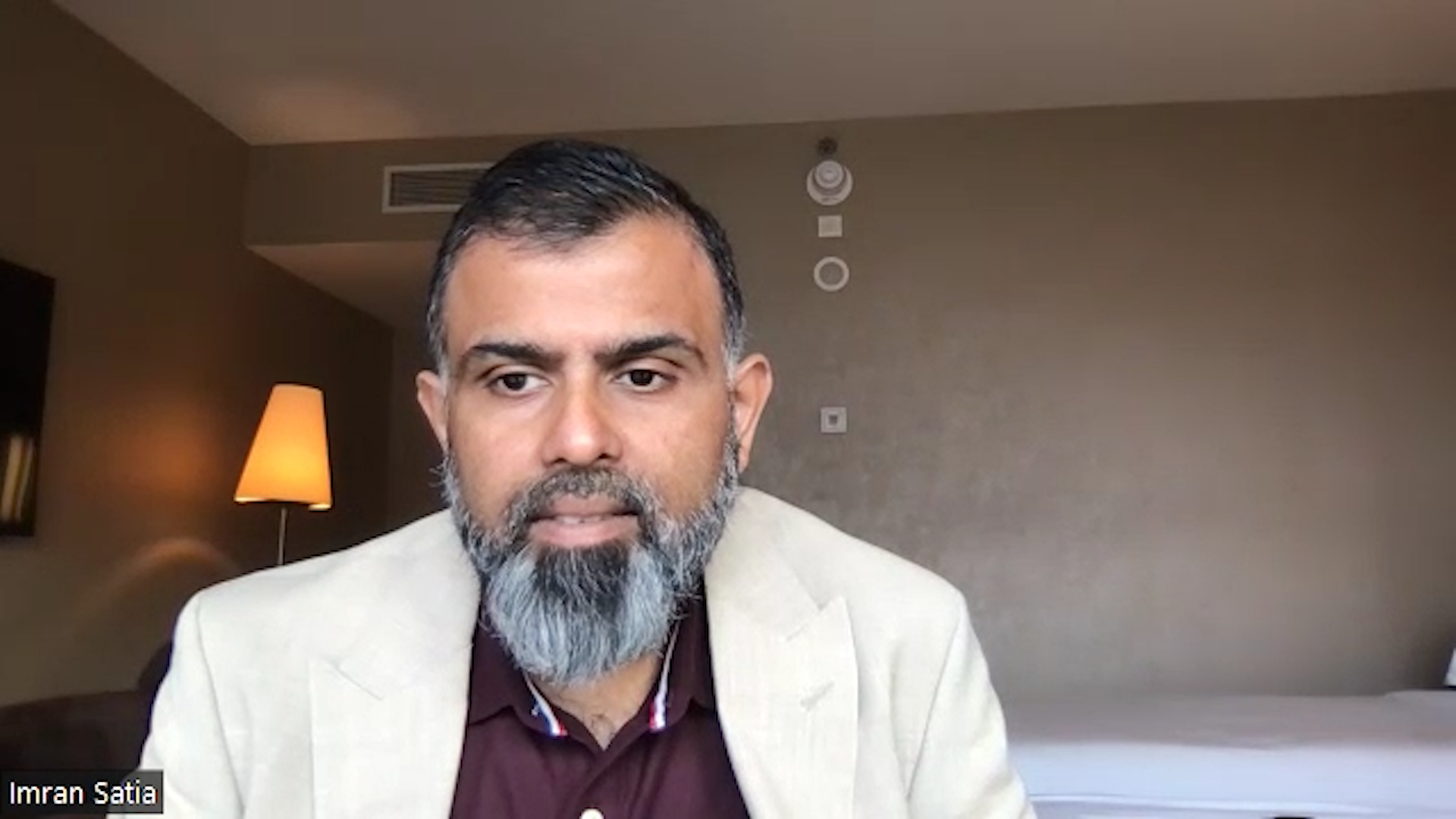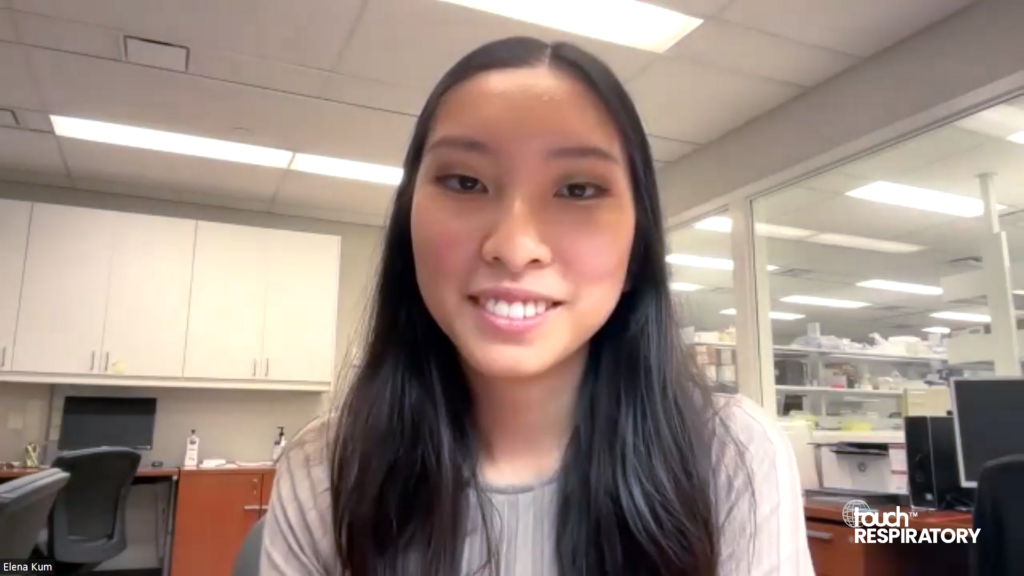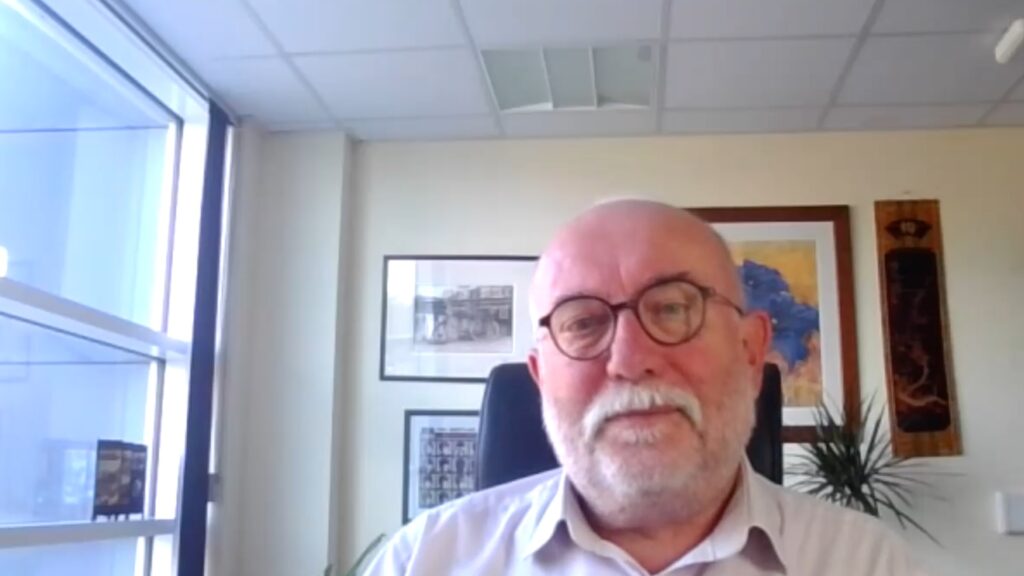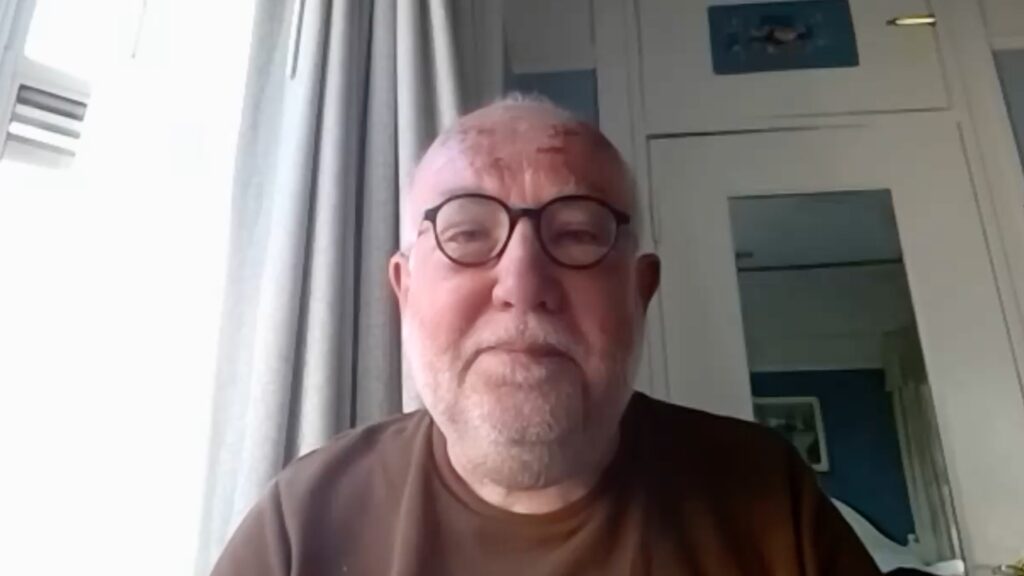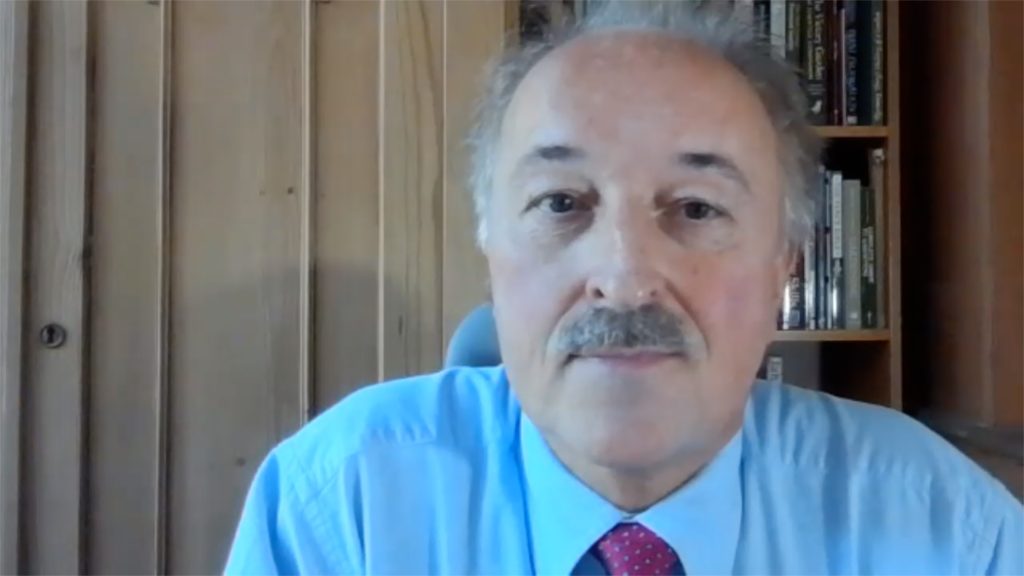COUGH 1 and COUGH 2, were randomized, double-blind, placebo-controlled phase 3 trials, that investigated gefapixant for the treatment of refractory or unexplained chronic cough. It was a pleasure to speak with Dr. Imran Satia (McMaster University, Hamilton, ON, Canada) around his analysis of COUGH-1 and -2, looking at gefapixant efficacy by patient history of refractory or unexplained chronic cough.
The abstract ‘Gefapixant efficacy and safety in participants with history of refractory or unexplained chronic cough for ≥1 vs <1 year‘ was presented at ERS 2023, 9 – 13 September 2023.
Questions
- What were the aims, design, and eligibility criteria of the COUGH-1 and -2 studies? (0:21)
- Could you give us a brief overview of the findings from these studies? (2:02)
- How do the efficacy and safety findings differ in patients with history of refractory or unexplained chronic cough for ≥1 vs <1 year? (3:53)
- What is the clinical significance of these findings? (4:32)
Disclosures: Imran Satia discloses consulting for Bellus, Merck, Genentech, and Respiplus; receiving grant/research support from GSK, and Merck; serving on advisory boards for Bellus; receiving honoraria from Novartis; and participating in speaker’s bureaus with AstraZeneca, GSK, and Merck.
Support: Interview and filming supported by Touch Medical Media Ltd. Interview conducted by Shanice Allen.
Filmed in coverage of the ERS Annual Meeting.
Click here for more content on chronic cough.
What were the aims, design, and eligibility criteria of the COUGH-1 and -2 studies?
These were 2 large, multi-centre, global, randomised, placebo-controlled studies lasting 52 weeks. The study enrolled patients over the age of 18 who had refractory/unexplained chronic cough for 1 year or greater with a baseline cough severity VAS of >40mm and who also had a normal chest x-ray. Current Smokers, and those with other serious underlying lung diseases such as pulmonary fibrosis, recurrent infections or bronchiectasis were excluded.
The aim was to assess efficacy and safety of twice daily 45mg and twice daily 15mg compared to placebo. The primary outcome was the % reduction in 24-hr cough frequency using the vitalojak cough monitoring system at 12 weeks in cough-1 and at 24 weeks in cough-2 compared to placebo . Subjective improvements in patient reported cough quality of life and cough severity was measured using the LCQ and cough severity on a 100mm VAS throughout the study up until 52 weeks. Adverse events were carefully monitored throughout the study.
Could you give us a brief overview of the findings from these studies?
We conducted a dose-response meta-analysis of gefapixant that included 9 randomized clinical trials and 2980 patients. Compared with placebo, use of gefapixant (45 mg orally twice daily) reduced cough frequency by 17.6%, decreased cough severity by 6.2 mm on the 100-mm visual analog scale, and improved cough quality of life by 1 point on the Leicester Cough Questionnaire (score range, 3-21). The mean risk difference in the % of patients achieving a minimally important difference in objective and subjective outcomes was also greater those receiving twice daily 45mg compared with placebo. These ranged from 5% greater to 11% greater. Patients treated with gefapixant (45 mg orally twice daily) had, however, a 32% increase in taste-related adverse events compared with placebo and a higher risk of discontinuations related to taste adverse events. The results of the lower dose of twice daily 15mg were not statistically different to the placebo group. Taste disturbance resolved in 25% whilst taking the medication and resolved in almost everyone after stopping treatment in the remaining patients at the end of treatment.
How do the efficacy and safety findings differ in patients with history of refractory or unexplained chronic cough for ≥1 vs <1 year?
There was no significant differences in the subjective patient reported outcomes as measured by the LCQ, cough severity VAS and cough severity diary in those patients who had been coughing for almost 11 years compared to those who were coughing less that 1 year. Adverse events were also similar between groups.
What is the clinical significance of these findings?
Overall, these data suggests that twice daily 45mg of gefapixant may be effective in some patients with RCC/UCC and the duration of coughing does not influence at least the subjective patient reported endpoints. Taste related adverse events are the most common adverse events, but these either get better or resolve after stopping treatment. Patients and physicians should consider this treatment option in RCC/UCC who have been appropriately investigated, and underlying conditions treated but still coughing.

